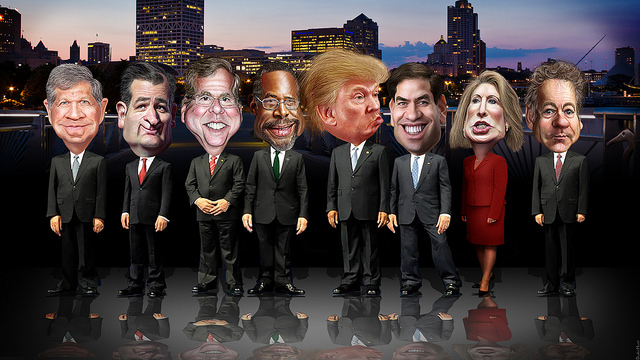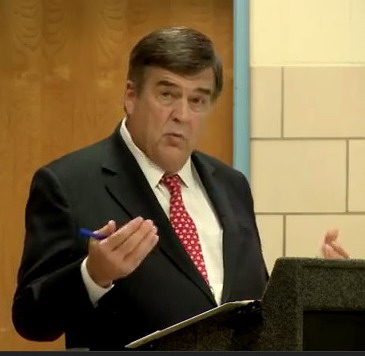Over the last year, a record 80,000 Americans died of opioid overdoses. It is a real problem that has grown astronomically worse in Baltimore and Maryland due to the rise in synthetic opioids like fentanyl, which accounts for the vast majority of drug-related deaths.
To fight this epidemic of addiction and misery, it will take resources for public health agencies, addiction services, law enforcement and the courts. And yet, Baltimore City’s leaders are turning down guaranteed addiction-fighting dollars to make a bet that they can exact an even bigger payday from the pharmaceutical industry.
In reaction to soaring opioid addiction, a bipartisan group of dozens of state attorneys general sued the opioid maker Johnson & Johnson and three drug distributions. The companies settled with the states for $26 billion to be divided among the states and their localities. Maryland is due $400 million over the 18 years of the deal. Except the state’s most impacted municipality – the city of Baltimore – won’t agree to accept its share of the funds – close to $100 million.
City leaders think they get even more out of the drug companies in their lawsuit with a trial set for September 2024.
But it’s a bad bet.
First, Baltimore needs relief now. Charm City has the highest overdose fatality rate in the country – with well over 1,000 deaths a year due to accidental overdoses. There are tens of thousands of non-fatal overdose events, where users were fortunately saved by medical interventions including the use of the overdose reversal drug Narcan.
While federal Covid relief and infrastructure spending have bolstered Baltimore’s coffers, that funding is slated to run out soon, leaving the city (and its taxpayers) increasingly on the hook for maintaining its spending priorities. Education, redevelopment, tax relief, and public safety costs risk crowding out the essential spending on addiction-related spending.
Addiction services like counseling, rehabilitation treatment, and medical care as well as tools like Narcan – which the government distributes free of charge – cost money. A dedicated fund from the settlement would go a long way toward meeting some of the city’s needs and will help save lives.
Why? According to North Carolina’s Attorney General Josh Stein, “It is absolutely enough money to make an impact. It’s not enough money to end addiction. But what I am 100 percent certain is that there will be many, many more people who are alive, healthy, and happy because of these funds and the important programs they’re going to fund than otherwise would be.”
Other jurisdictions are already putting their settlements to good use –on greater law enforcement and social services.
The states and municipalities sued to get the drug companies to bear some of the costs of the opioid epidemic. They agreed.
But Baltimore can’t take yes for an answer. And it’s a dangerous gamble.
In other cases where jurisdictions wanted even more – they got less. Nothing to be exact.
Last year, Cabell County, West Virginia saw its opioid suit thrown out altogether by a federal judge. In Oklahoma, the state’s case was rejected by their state supreme court, leaving Oklahoma with nothing in return for its expensive lawsuit against the opioid companies. The judge in the California counties’ case found the drug companies not liable whatsoever and not entitled to damages.
Only two major jurisdictions, Baltimore city and Washington state, are still pursuing the same (failed) legal approach of California and Oklahoma, alleging the drug companies acted a “public nuisance” in marketing their product. Although Washington’s Attorney General Bob Ferguson took a settlement with the drug distributors earlier this year, he is still suing the opioid maker Johnson & Johnson. Baltimore’s lawsuit, meanwhile, names all of the parties involved in the broader settlement as well as several other manufacturers and distributors.
But why is Baltimore pursuing this risky, and so far unsuccessful, legal strategy, when the risk of losing is so enormous? Because the potential payout of a go-it-alone win would be entirely in the hands of city leaders, as opposed to settlement funds being partially doled out by the state. That and the city leaders want to appear to be doing something – instead of actually solving the problem – as the city law department declared it is “battling for bigger things.” So, politicians still win even if their constituents lose.
The other “winner” in the unlikely case that Baltimore prevails would be the for-profit Houston law firm, Susman Godfrey, which the city hired on contingency. Susman Godfrey only makes money if the city wins in court. The firm would reap an undisclosed but large percentage of any damages payment the city receives. The for-hire lawyers have every incentive to keep the case going even if it’s not in Baltimoreans’ best interests.
No amount of money is going to bring back lives lost to the opioid epidemic, but we should do everything possible to stop any more being lost to or ruined by these dangerous drugs. The available resources – that every single other Maryland jurisdiction is taking advantage of – can go a long way toward saving lives. Those struggling with addiction can’t risk Baltimore’s bad bet.







Recent Comments